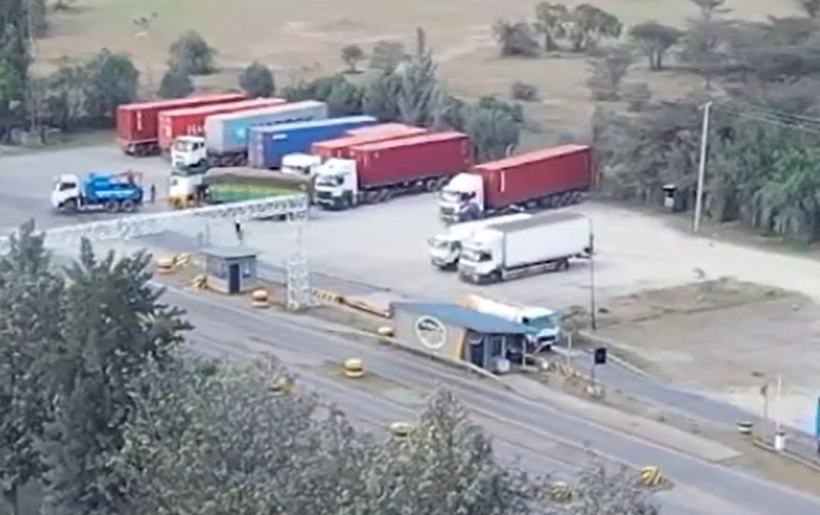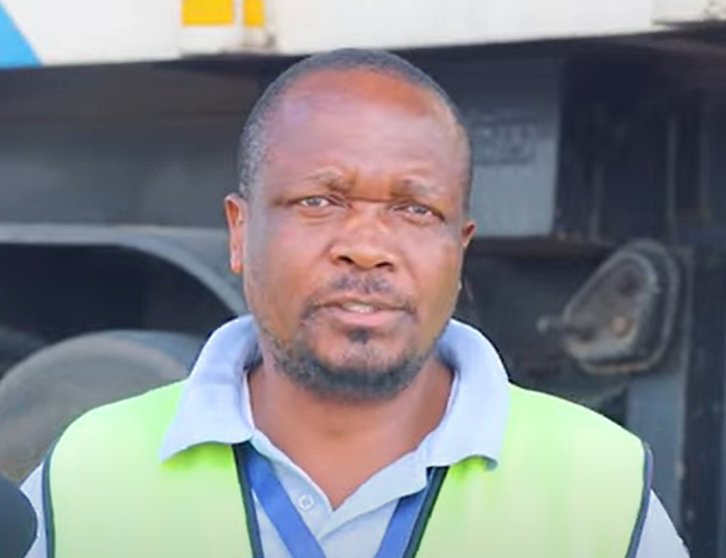Kenyan truck drivers are using a mix of spotters, side routes, and altered number plates to avoid highway weighbridges, according to officials from the Kenya National Highways Authority (KeNHA).

The evasion happens mostly at night, when patrol teams are on mobile duty.
The outline came during a media walk-through at the Mlolongo Weighbridge, where Jackson Kimuyu, assistant operations manager at Danka Africa Kenya Limited, the firm contracted to run the site, described what patrols from KeNHA’s Axle Load Enforcement Highway Units (ALEHU) encounter on routine shifts.
The picture is less about lone opportunists and more about a loose network that feeds drivers timely information and alternative routes.
At the front end are boda boda riders engaged as spotters.
Parked along main corridors and feeder roads, they track the movement of enforcement vehicles and pass alerts to truckers in real time.

A second layer relies on private motorists and ride-hailing drivers who photograph patrol units and upload the images to closed WhatsApp groups where truck drivers plan their next move.
Those threads double as noticeboards for “panya routes” which include estate and farm roads that cut around weighbridges.
Heavy traffic on these shortcuts has worn many of them down, leaving potholes and rough surfaces that smaller cars struggle to navigate.
Drivers intent on avoiding detection also interfere with number plates to confuse virtual sensors and weigh-in-motion systems.
Altered fonts, obscured characters or temporary covers can throw off plate recognition, buying enough time to slip past a checkpoint or divert before a stop.
While not every truck uses such measures, patrol teams say they encounter them often enough to adjust tactics and verify identities manually.
Patrol teams rotate through corridors with mobile units, while driver chats light up with location pins, fresh photos and route suggestions.
The result is a moving puzzle; enforcement shifts position, the network responds, and both sides recalibrate before dawn.
Not every interaction is routine.
In Athi River, a team was attacked with stones by a group of sand loaders but police stepped in and escorted the officers out.
KeNHA says it is working with the Directorate of Criminal Investigations (DCI) to identify organisers and drivers who coordinate diversions or obstruct patrol work.
Offences tied to obstruction, malicious damage and related crimes are being pursued under the Penal Code.
The stakes are practical as much as legal.
Trucks that run heavy are harder to handle and chew through pavement faster, pushing up repair bills for long-haul routes and the smaller roads that now carry more freight traffic than they were built for.
Road safety staff also contend with late-night stops on poorly lit stretches where the information ripple from spotters can draw crowds or prompt sudden detours.
“Our goal is safe roads and compliance,” Kimuyu said, adding that teams will continue to log plate data and hand cases to investigators where needed.
“We don’t want to catch offenders. We want to protect lives, protect our roads, and make sure the law is respected. The longer these tactics continue, the more damage we will see to both infrastructure and public safety,” he added.
Kimuyu noted that overloading enforcement remains central to KeNHA’s work.
“The crackdown is not about numbers or arrests. It is about the safety of all road users. These trucks are not just a danger to themselves but to everyone who shares the road.”
For now, the pattern holds: a network of lookouts and driver groups steering trucks around checks, enforcement units shadowing that movement across the highway grid, and a set of back-road corridors that bear the wear and tear of the nightly workaround.











































